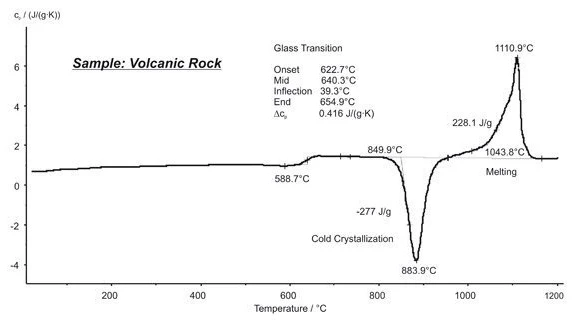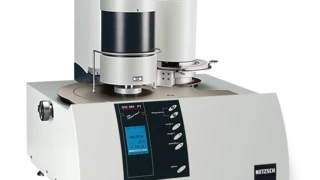無機材料
Volcanic Rock - Glas Transition, Crystallization, Melting
Natural materials such as rocks are difficult to analyze with regard to their chemical composition.
Such materials are generally a mixture of different oxides, sulfates or carbonates. Volcanic rocks are generally solidified from molten magma and their main contents are different oxides. This example shows a DSC measurement result for such a material. It can clearly be seen that it solidified almost completely amorphous. The Glass Transition TemperatureThe glass transition is one of the most important properties of amorphous and semi-crystalline materials, e.g., inorganic glasses, amorphous metals, polymers, pharmaceuticals and food ingredients, etc., and describes the temperature region where the mechanical properties of the materials change from hard and brittle to more soft, deformable or rubbery.glass transition was between 623°C and 655°C. Cold CrystallizationCrystallization is the physical process of hardening during the formation and growth of crystals. During this process, heat of crystallization is released.crystallization and melting were detected at 884°C and 1111°C (peak temperature). The heat released during CrystallizationCrystallization is the physical process of hardening during the formation and growth of crystals. During this process, heat of crystallization is released.crystallization was comparable to the heat of fusion, indicating the highly amorphous nature of this mixture. (measurement with DSC 404 F1 Pegasus®®)

